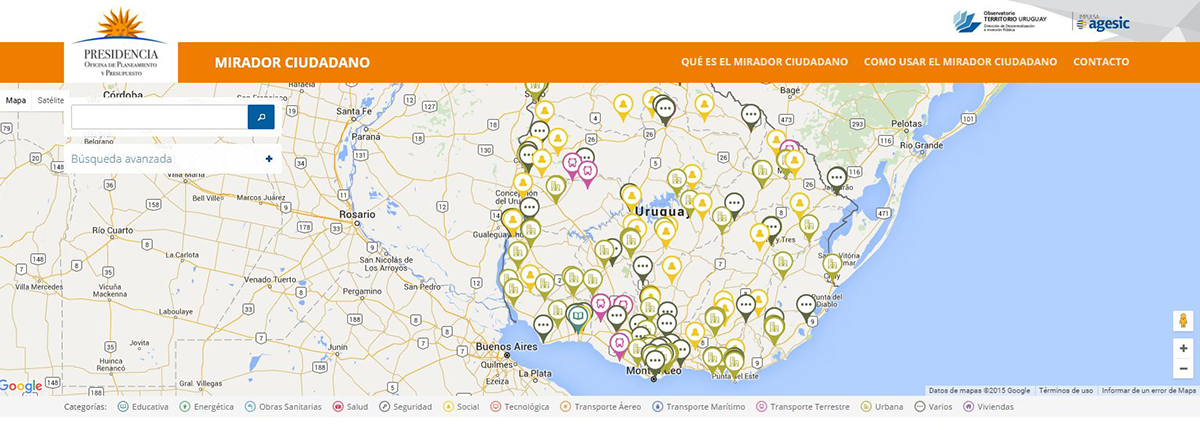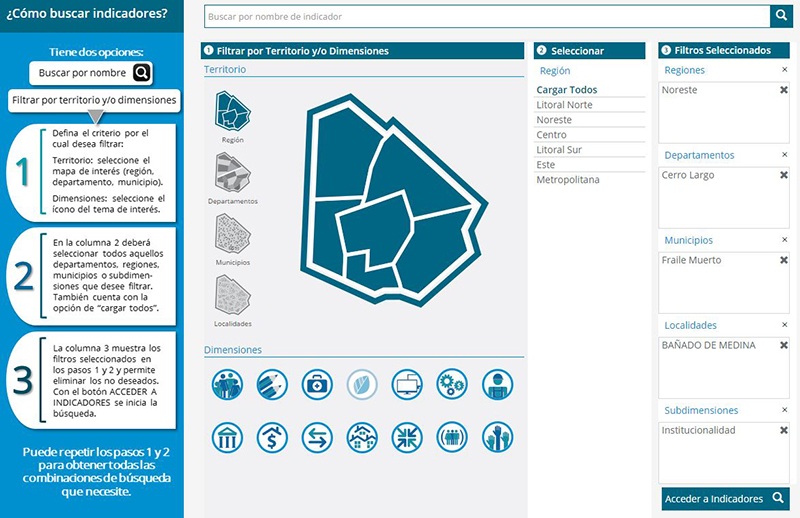Observatorio Territorio Uruguay, territorial policy monitor

The Directorate of Decentralisation and Public Investment and the Office of Planning and Budget of Uruguay has set up a digital platform, known as Observatorio Territorio Uruguay, that collects and makes available to all users data and indicators of all of Uruguay’s territorial levels. This tool could have a positive impact on the implementation of the 2030 Agenda, since it is based on a comprehensive series of territorial indicators.
The initiative has been launched to collect and disseminate all information relating to the country’s territorial policy planning, management and assessment, as well as to facilitate access to information of all kinds of user, from civil society to the political and economical spheres and the technical levels of all state agencies. Another indirect function of the platform, although also important, is that through the dissemination of data, it boosts the decentralisation process.
The website, which is highly intuitive, has four main sections. The first one contains the indicators that users can consult, filtering their search by territorial level –local, municipal, departmental and regional–, by the dimension –demography, health, economic activity, territorial cohesion, social participation, etc.– and by territory. A profiles section summarises the current demographic, economic, employment, education and well-being status of each department. It also offers the possibility of downloading a complete profile with all indicators, numbers and data.

The users can also follow online the execution of all public work being developed in the territory, through an interactive map called citizen’s lookout. Lastly, the platform includes an interesting library with dozens of publications and studies on territorial and regional topics, regarding the intermediate governments.








































































